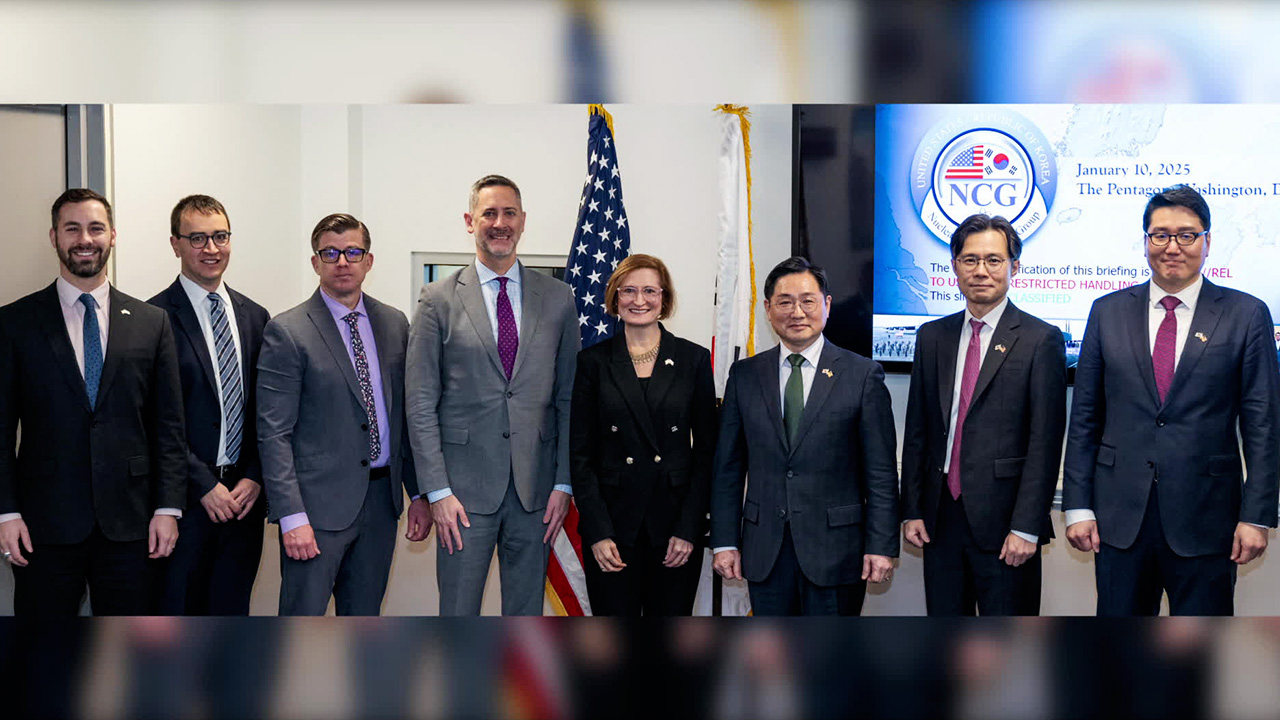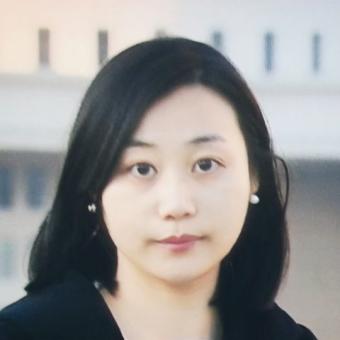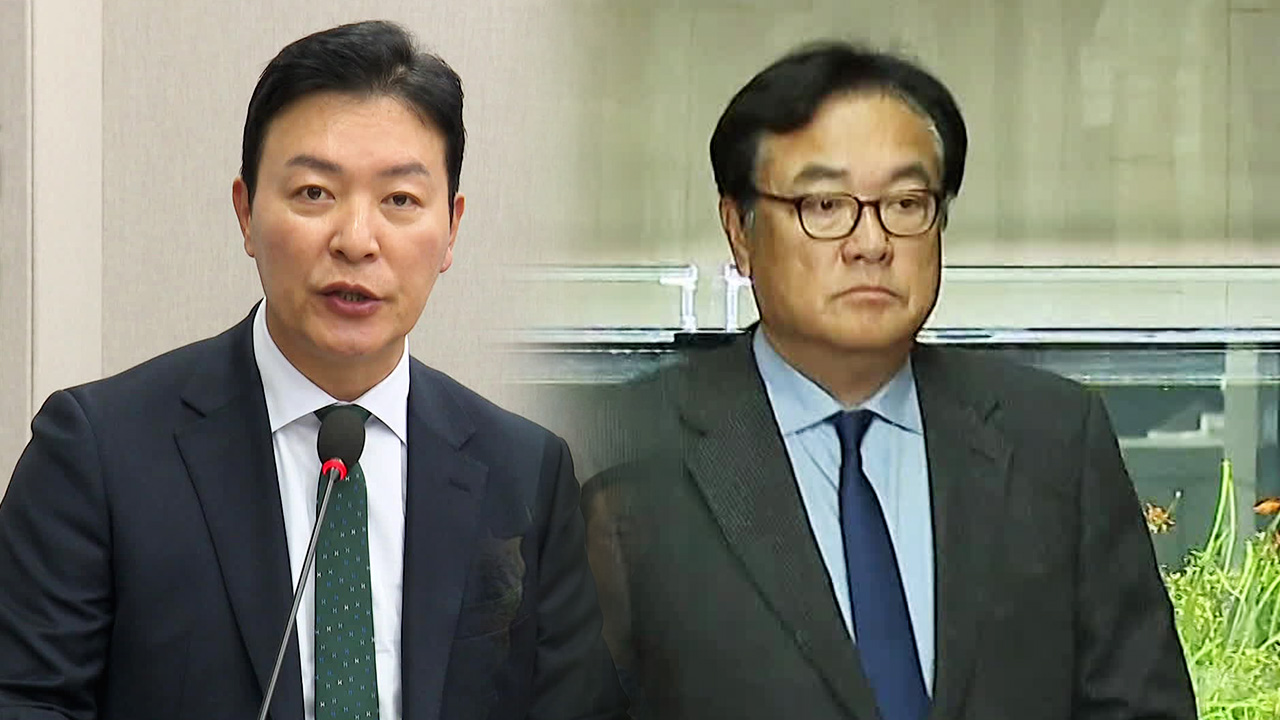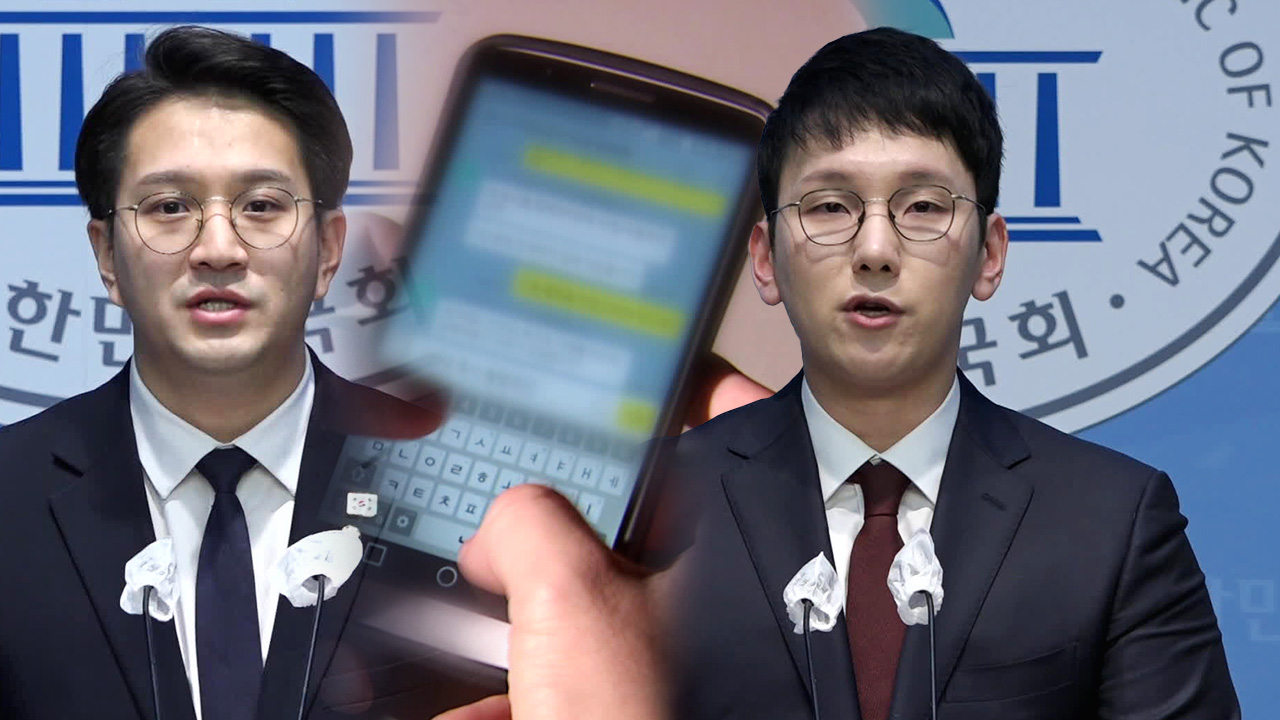[Anchor]
The United States and South Korea held the fourth session of the Nuclear Consultative Group.
This meeting is a product of the Washington Declaration, which is central to the South Korea-U.S. alliance.
Concerns have been raised that it may be downsclaed when the Trump administration begins.
Reporter Kim Kyung-jin examines the future of the Nuclear Consultative Group and the Washington Declaration.
[Report]
The fourth session of the South Korea-U.S. Nuclear Consultative Group (NCG), which had been postponed due to the emergency martial law situation, was held.
Both sides emphasized that the NCG will continue to function as a foundation for strengthening the South Korea-U.S. integrated extended deterrence.
The U.S. promised to enhance its deterrence against North Korea through the nuclear umbrella via the "Washington Declaration," and since the NCG is the product of that, the consultative body should continue even if the administration changes.
This is interpreted as awareness of concerns that the NCG may be reduced under a second Trump administration.
In fact, Elbridge Colby, the nominee for Deputy Assistant Secretary of Defense under Trump’s second term, has stated that the "Washington Declaration" is ineffective in resolving the North Korean nuclear issue.
However, there are also analyses suggesting that it will not be easy to nullify the already institutionalized NCG overnight, even under a second Trump administration.
[Park Won-gon/Professor, Department of North Korean Studies, Ewha Womans University: "Unless alternative choices are given to South Korea, it could undermine the foundation of the South Korea-U.S. alliance, so I believe the Trump administration will seriously consider this aspect."]
The existence of the NCG is also linked to North Korea-U.S. negotiations.
If North Korea-U.S. negotiations materialize, North Korea is likely to demand the abolition of the NCG from the outset of the negotiations.
The Trump administration may maintain the NCG while additionally demanding costs related to the deployment of strategic assets.
[Cha Du-hyun/Senior Research Fellow, Asan Institute for Policy Studies: "The issue related to the strengthening of the U.S. extended deterrence commitment is closely related to discussions on cost-sharing between South Korea and the U.S."]
The trilateral cooperation between South Korea, the U.S., and Japan, which has been solidified by the Camp David agreement, is expected to shift its focus from "deterrence against North Korea" to "containing China" under a second Trump administration.
This is KBS News, Kim Kyung-jin.
The United States and South Korea held the fourth session of the Nuclear Consultative Group.
This meeting is a product of the Washington Declaration, which is central to the South Korea-U.S. alliance.
Concerns have been raised that it may be downsclaed when the Trump administration begins.
Reporter Kim Kyung-jin examines the future of the Nuclear Consultative Group and the Washington Declaration.
[Report]
The fourth session of the South Korea-U.S. Nuclear Consultative Group (NCG), which had been postponed due to the emergency martial law situation, was held.
Both sides emphasized that the NCG will continue to function as a foundation for strengthening the South Korea-U.S. integrated extended deterrence.
The U.S. promised to enhance its deterrence against North Korea through the nuclear umbrella via the "Washington Declaration," and since the NCG is the product of that, the consultative body should continue even if the administration changes.
This is interpreted as awareness of concerns that the NCG may be reduced under a second Trump administration.
In fact, Elbridge Colby, the nominee for Deputy Assistant Secretary of Defense under Trump’s second term, has stated that the "Washington Declaration" is ineffective in resolving the North Korean nuclear issue.
However, there are also analyses suggesting that it will not be easy to nullify the already institutionalized NCG overnight, even under a second Trump administration.
[Park Won-gon/Professor, Department of North Korean Studies, Ewha Womans University: "Unless alternative choices are given to South Korea, it could undermine the foundation of the South Korea-U.S. alliance, so I believe the Trump administration will seriously consider this aspect."]
The existence of the NCG is also linked to North Korea-U.S. negotiations.
If North Korea-U.S. negotiations materialize, North Korea is likely to demand the abolition of the NCG from the outset of the negotiations.
The Trump administration may maintain the NCG while additionally demanding costs related to the deployment of strategic assets.
[Cha Du-hyun/Senior Research Fellow, Asan Institute for Policy Studies: "The issue related to the strengthening of the U.S. extended deterrence commitment is closely related to discussions on cost-sharing between South Korea and the U.S."]
The trilateral cooperation between South Korea, the U.S., and Japan, which has been solidified by the Camp David agreement, is expected to shift its focus from "deterrence against North Korea" to "containing China" under a second Trump administration.
This is KBS News, Kim Kyung-jin.
■ 제보하기
▷ 카카오톡 : 'KBS제보' 검색, 채널 추가
▷ 전화 : 02-781-1234, 4444
▷ 이메일 : kbs1234@kbs.co.kr
▷ 유튜브, 네이버, 카카오에서도 KBS뉴스를 구독해주세요!
- NCG fourth session held
-
- 입력 2025-01-11 23:37:03

[Anchor]
The United States and South Korea held the fourth session of the Nuclear Consultative Group.
This meeting is a product of the Washington Declaration, which is central to the South Korea-U.S. alliance.
Concerns have been raised that it may be downsclaed when the Trump administration begins.
Reporter Kim Kyung-jin examines the future of the Nuclear Consultative Group and the Washington Declaration.
[Report]
The fourth session of the South Korea-U.S. Nuclear Consultative Group (NCG), which had been postponed due to the emergency martial law situation, was held.
Both sides emphasized that the NCG will continue to function as a foundation for strengthening the South Korea-U.S. integrated extended deterrence.
The U.S. promised to enhance its deterrence against North Korea through the nuclear umbrella via the "Washington Declaration," and since the NCG is the product of that, the consultative body should continue even if the administration changes.
This is interpreted as awareness of concerns that the NCG may be reduced under a second Trump administration.
In fact, Elbridge Colby, the nominee for Deputy Assistant Secretary of Defense under Trump’s second term, has stated that the "Washington Declaration" is ineffective in resolving the North Korean nuclear issue.
However, there are also analyses suggesting that it will not be easy to nullify the already institutionalized NCG overnight, even under a second Trump administration.
[Park Won-gon/Professor, Department of North Korean Studies, Ewha Womans University: "Unless alternative choices are given to South Korea, it could undermine the foundation of the South Korea-U.S. alliance, so I believe the Trump administration will seriously consider this aspect."]
The existence of the NCG is also linked to North Korea-U.S. negotiations.
If North Korea-U.S. negotiations materialize, North Korea is likely to demand the abolition of the NCG from the outset of the negotiations.
The Trump administration may maintain the NCG while additionally demanding costs related to the deployment of strategic assets.
[Cha Du-hyun/Senior Research Fellow, Asan Institute for Policy Studies: "The issue related to the strengthening of the U.S. extended deterrence commitment is closely related to discussions on cost-sharing between South Korea and the U.S."]
The trilateral cooperation between South Korea, the U.S., and Japan, which has been solidified by the Camp David agreement, is expected to shift its focus from "deterrence against North Korea" to "containing China" under a second Trump administration.
This is KBS News, Kim Kyung-jin.
The United States and South Korea held the fourth session of the Nuclear Consultative Group.
This meeting is a product of the Washington Declaration, which is central to the South Korea-U.S. alliance.
Concerns have been raised that it may be downsclaed when the Trump administration begins.
Reporter Kim Kyung-jin examines the future of the Nuclear Consultative Group and the Washington Declaration.
[Report]
The fourth session of the South Korea-U.S. Nuclear Consultative Group (NCG), which had been postponed due to the emergency martial law situation, was held.
Both sides emphasized that the NCG will continue to function as a foundation for strengthening the South Korea-U.S. integrated extended deterrence.
The U.S. promised to enhance its deterrence against North Korea through the nuclear umbrella via the "Washington Declaration," and since the NCG is the product of that, the consultative body should continue even if the administration changes.
This is interpreted as awareness of concerns that the NCG may be reduced under a second Trump administration.
In fact, Elbridge Colby, the nominee for Deputy Assistant Secretary of Defense under Trump’s second term, has stated that the "Washington Declaration" is ineffective in resolving the North Korean nuclear issue.
However, there are also analyses suggesting that it will not be easy to nullify the already institutionalized NCG overnight, even under a second Trump administration.
[Park Won-gon/Professor, Department of North Korean Studies, Ewha Womans University: "Unless alternative choices are given to South Korea, it could undermine the foundation of the South Korea-U.S. alliance, so I believe the Trump administration will seriously consider this aspect."]
The existence of the NCG is also linked to North Korea-U.S. negotiations.
If North Korea-U.S. negotiations materialize, North Korea is likely to demand the abolition of the NCG from the outset of the negotiations.
The Trump administration may maintain the NCG while additionally demanding costs related to the deployment of strategic assets.
[Cha Du-hyun/Senior Research Fellow, Asan Institute for Policy Studies: "The issue related to the strengthening of the U.S. extended deterrence commitment is closely related to discussions on cost-sharing between South Korea and the U.S."]
The trilateral cooperation between South Korea, the U.S., and Japan, which has been solidified by the Camp David agreement, is expected to shift its focus from "deterrence against North Korea" to "containing China" under a second Trump administration.
This is KBS News, Kim Kyung-jin.
-
-

김경진 기자 kjkim@kbs.co.kr
김경진 기자의 기사 모음
-
이 기사가 좋으셨다면
-
좋아요
0
-
응원해요
0
-
후속 원해요
0











![[단독] 경호처 내부망에 “영장 막으면 위법”…경호차장이 ‘삭제’ 지시](/data/layer/904/2025/01/20250111_P6Paxp.jpg)



이 기사에 대한 의견을 남겨주세요.